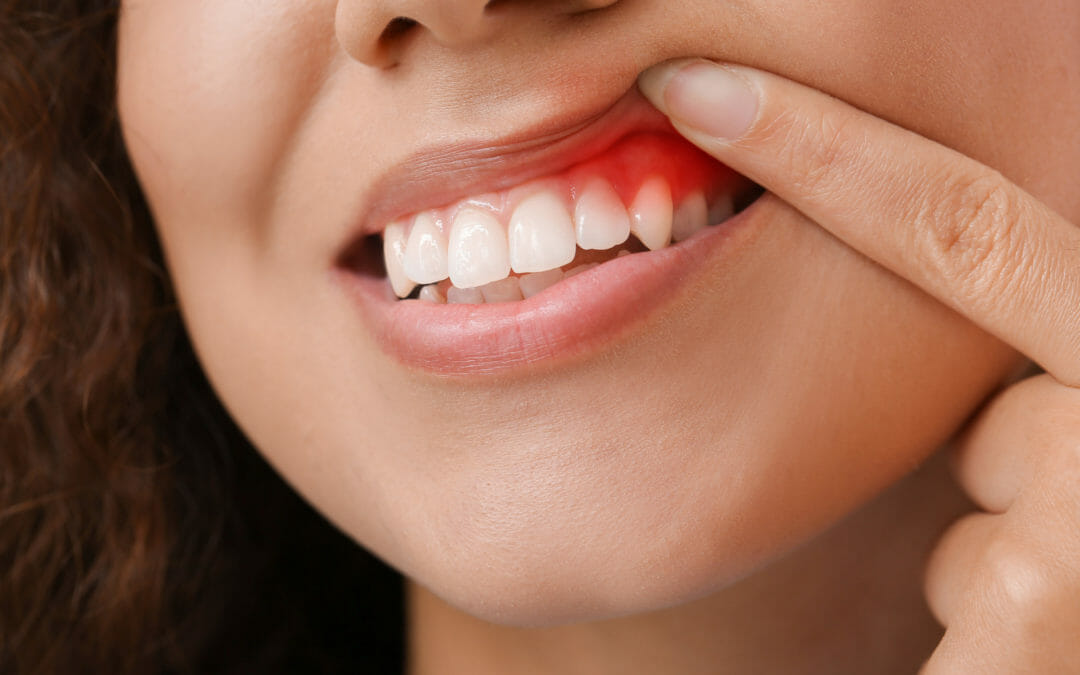Having problems with the gums is one of the main reasons that patients visit the dentist. When there is gum disease, it can be highly detrimental to your overall health as well as to your oral health. So many adults have gum disease that it’s a common complaint for patients. About half of all adults in the U.S. suffer from gum disease, so if you have it, you aren’t alone. The problem is often when you don’t know that you have it and don’t get the proper treatment for it. However, there are ways to tell that you have gum disease so that you can get to a dentist quickly.
Periodontal disease, also called gum disease, can be serious. It can get worse quickly, and it can put your teeth, and your health, at risk. When it gets serious, it can lead to teeth that get loose and/or infected, and they may have to be removed.
Gum Recession
If you notice that your teeth are looking longer, this can mean gum recession. As the gums recede away, more of the tooth becomes visible, giving you that longer look. When your gums are receding, this is a symptom of gum disease that is getting worse. The gum tissue is being lost from around the longer tooth, and the root of the tooth is becoming exposed. The dentist can measure that area on the tooth’s outer surface so that the amount of gum recession is tracked. When the tooth keeps getting longer and the gums shorter, the dentist can then make a recommendation for what to do about the recession. Often, an oral surgeon is needed to perform a treatment to replace the gums that were lost.
Gum Pocketing
When the gums are receding, the gums can begin to move away from the teeth, and this creates gum pockets. These pockets are the ideal places for plaque and food to get trapped and cause problems. As gum disease gets worse, it gets difficult to get the debris out of the pockets at home with standard dental care. This then leads to the pockets getting deeper and catching more debris. Dentists can also measure these pockets to determine how serious they are and whether they are getting worse. Anything above a measurement of 3mm deep for the pockets means that you have gum disease and likely an infection.
Bleeding Gums
An early sign of gum disease, bleeding gums can signify a lot of problems. Plaque is a substance that forms on the teeth, and it can be quite sticky. Plaque contains harmful bacteria that can cause your gums to become inflamed. Brushing and flossing can get rid of much of this plaque, but if you don’t do these regularly, plaque on your teeth can lead to bacteria under your gums. The bacteria can easily spread around your gums, and this can cause your gums to bleed during brushing. No one’s gums should bleed when brushing and flossing, so when you see this, you know there’s a problem.
In many cases, it is the bleeding that first signifies gum disease. As plaque keeps building up, your bleeding will also get worse. It’s also common for the gums to get red, swell up, and feel sore. Your teeth may also become sensitive. If you regularly skip flossing, the buildup of plaque can lead to gingivitis that keeps getting worse. The fibers that keep your gums attached to the teeth can be destroyed by this gum disease. When your gums are inflamed, this can allow the harmful bacteria there to get into your bloodstream. That bacteria then spreads and can result in many health problems. These include blood clots that can lead to strokes and heart attacks. It’s always necessary to see a dentist when your gums are bleeding.
Bleeding gums tend to get worse over time if there is no treatment for your gum disease. This will begin with bleeding during brushing, but it will eventually lead to bleeding at other times such as when you eat. They will eventually start to bleed by themselves when you aren’t eating or brushing. Then, the gums will start to get darker as the gingivitis begins to worsen and eats away at your gums.
Sensitive Teeth
Another sign of gum disease is teeth that are sensitive. This often means that your gums are receding or are starting to develop pockets. When this happens, more of the root of the teeth are exposed. This makes them far more sensitive. When the root is exposed, it can also make your tooth more vulnerable to tooth decay, the root becoming worn, and possibly the loss of your teeth. If you notice your teeth becoming more sensitive, there may be a problem that you need to have checked by a dentist. It’s possible that you need surgical help to stop the progression of your gum disease.
Contact Us for Treatment
If you have gum disease, you need to have the situation evaluated to see which types of treatments you may need. Give us a call at DFW Oral Surgeons to find out more.

